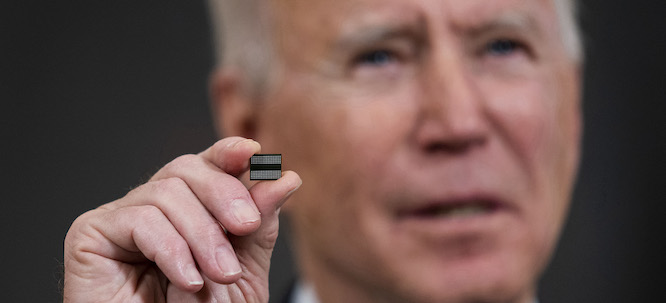Republican lawmakers in the US Congress are unabashedly pro-global warming: “Bring it on! We’ve got air conditioners in our cars, offices, and homes… no sweat!” Not one Republican in Congress voted for the nation’s most inclusive climate bill of all time, the Inflation Reduction Act, not one Republican vote.
Meanwhile, here we go again, this coming fall, with Congress in another deadline to avoid a partial government shutdown. They must pass several spending bills by September 30th when current funding expires or face another ugly quasi-default situation. Leading up to this white-knuckle drop-dead deadline, Republican lawmakers have armed themselves with a plethora of “climate poison pills” inserted into spending proposals. They hope to trim the budget by hammering climate funding.
They want to stop Biden’s Inflation Reduction Act dead in its tracks, and climate change is a prime target for massive cuts, to hell with global warming. They don’t buy into the climate change/global warming song and dance routine, as they like to reference it.
According to the Clean Budget Coalition, a watchdog group of advocacy nonprofits, at least seventeen (17) “poison pill” amendments have been issued to block clean energy funding. A poison pill is an amendment that weakens a legislative bill’s effectiveness and/or destroys its chances of passing.
This brings into focus a Republican Party that purportedly represents the interests of its constituents by torpedoing bills that mitigate global warming, consequently, eliminating green jobs in red states funded by the Inflation Reduction Act. There are lots of them.
Accordingly, “red states will receive $337B in investments for large solar, wind, and storage projects, Democratic states $183B” (Bloomberg News), making revenue assumptions more inclusive and beyond the Inflation Reduction Act of $375B as the act multiplies private initiatives.
An analysis by the Rocky Mountain Institute, extending beyond renewable projects within the Inflation Reduction Act, red states will receive investments of $623B compared to $354B for blue states between now and 2030, assuming companies and consumers adopt clean technologies to meet national targets.
However, a new amendment proposal prohibits the federal government from buying electric vehicles. Rep. Paul Gosar (R-Ariz.) explains it, as follows: “The military is no place to experiment with untested technology… The combat readiness and training of soldiers and equipment is jeopardized by the compelled use of electric vehicles.”
Another amendment would prohibit R&D funding for EV charging infrastructure or solar panels within the National Defense Authorization Act.
Another demands the Defense Dept. terminate any contracts for electric non-combat vehicles.
Another amendment blocks the Biden executive order for federal departments to reach net-zero emissions by 2045 and reduce emissions by 50% by 2032.
Another amendment blocks all U.S. funding under the Paris climate agreement to help developing countries.
US Representative Paul Gosar, DDS, proposed his own solution in an October 10, 2021, tweet: “Even if climate change were real (it isn’t) there’s obviously solutions these ‘top scientists’ are ignoring. I have an ice maker in my basement. It can make gallons of ice cubes in a day. Can’t we just make a few million of these machines and replace this allegedly melting ice?”
Of course, none of this comes as a surprise. One year ago, Biden’s Inflation Reduction Act, which contained the nation’s first-ever comprehensive climate legislation, allocating $375B on decarbonization and climate resilience over 10 years, not backed by one Republican vote, zero Republican votes in the House and zero in the Senate. Now, they want to take their Republican opposition to climate policy one step further by undermining/compromising last year’s legislation.
The House State-Foreign Operations Appropriations Subcommittee, under the leadership of Subcommittee Chairman Mario Diaz-Balart (R-Fla.) advanced its fiscal 2024 spending bill on June 23rd including a prohibition of funding for “envoys not authorized by Congress or confirmed by the Senate.” Ipso facto, John Kerry’s position as Climate Czar will be eliminated along with his office budget of $16.7M, annually.
The Clean Budget Coalition’s Deanna Noel responded: “The disgraceful poison pill riders are nothing short of corporate giveaways to the corrupt fossil fuel industry.”
What’s going on with the lack of convincing congressional support to fight climate change as global warming clobbers the planet like never before? Elizabeth Kolbert explained the root cause in The New Yorker: “After Citizens United, according to the report (ed.-Senate Democrats’ Special Committee on the Climate Crisis) ‘Bipartisan activity on comprehensive climate legislation collapsed.”
The 2010 Supreme Court decision in the Citizens United case ruled that corporations and wealthy donors could, effectively, pour unlimited amounts of cash into electioneering. And guess what happened next? They bought a bunch of sell-outs, easy-to-buy, off-the-shelf baby-kissers. Ever since Citizens United, “billionaires are sponsoring candidates like prized racehorses.” They own them.
Tech billionaire Peter Thiel is a prime example, and an answer to why so many grovel at Trump’s feet: “Thiel is a particularly alarming example. Through massive donations to super PACs, which Citizens United brought to the fore, he’s using his riches to force his fringe views into mainstream political discourse. He’s supporting candidates who spread the false claim that fraud decided the 2020 election. And his money doesn’t just force a certain type of candidate into the public eye — it also silences Thiel’s ideological opponents. By working to defeat the 10 Republicans who voted to impeach Donald Trump, for example, Thiel has deterred others from speaking out against the former president. Few politicians can afford to ignore Thiel and the threat his money holds.”
That is today’s American politics at work. For three-years-running America’s highest-ranking politicians focused on phony voter fraud claims, not one shred of evidence so far, in the face of the most treacherous climate in human history, where funding cuts are now proposed.
ENDNOTES
This post was originally published on Dissident Voice.


